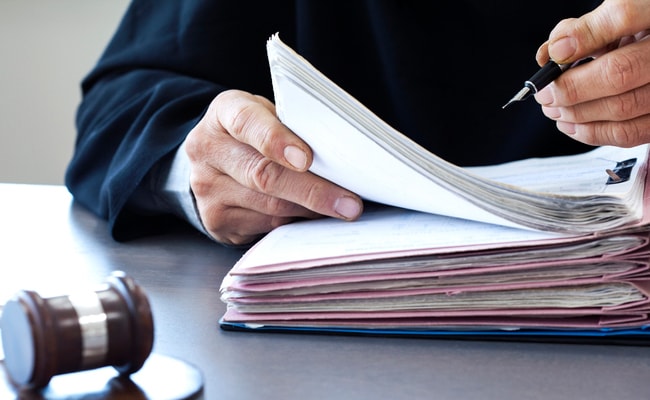
The Centre’s application was filed by Attorney General R Venkataramani.
New Delhi:
More than 12 years after its delivery, the Center on Monday moved the Supreme Court seeking modification of its judgment in the 2G spectrum case, which had said that the auction route should not be adopted while transferring or alienating the country’s natural resources. The state was obliged to.
In its judgment delivered on February 2, 2012, the Supreme Court had canceled the 2G spectrum licenses granted to various companies in January 2008 during A Raja’s tenure as Telecom Minister.
On Monday, Attorney General R Venkataramani, appearing for the Centre, mentioned an interim application before a bench of Chief Justice DY Chandrachud and Justice JB Pardiwala.
Seeking immediate listing of the application, the top law officer told the bench that the plea seeks modification of the 2012 judgment as the Center wants to grant 2G spectrum licenses in certain cases.
Advocate Prashant Bhushan, appearing for NGO Center for Public Interest Litigation, one of the petitioners on whose plea the February 2012 verdict was delivered, opposed the application and said the top court had violated its own rules on auctioning. This issue has been well resolved in the judgment. Natural resources, such as spectrum, are the only way to license radio frequencies allocated to the mobile phone industry for communications over the airwaves.
The CJI told Venkataramani, “We will see, please send an e-mail.”
In its 2012 judgment, the Supreme Court had said, “When it comes to alienation of scarce natural resources like spectrum, etc., it is the obligation of the State to ensure that a non-discriminatory method is adopted for distribution and alienation, which Will necessarily happen.” “As a result, national/public interest will be protected.”
The apex court in its view had said that a duly publicized auction conducted in a fair manner was perhaps the best way to get rid of this burden.
“In other words, while transferring or alienating natural resources, the State is bound to adopt the method of auction by giving wide publicity so that all eligible persons can participate in the process,” it had said.
On March 22 this year, the Delhi High Court had accepted the CBI’s appeal against the acquittal of Raja and 16 others in the 2G spectrum allocation case, paving the way for the trial of the case six years after the agency filed the petition Went.
Allowing the Central Bureau of Investigation’s appeal, the High Court had said that there were “certain contradictions” in the trial court’s judgment which required “thorough investigation”.
A special court had on December 21, 2017, acquitted Raja, DMK MP Kanimozhi and others in the CBI and ED cases related to 2G spectrum allocation.
On March 20, 2018, the CBI had approached the High Court, challenging the special court’s decision.
The CBI had alleged that there was a loss of Rs 30,984 crore to the exchequer in the allocation of licenses for 2G spectrum, which was quashed by the apex court on February 2, 2012.
(Except for the headline, this story has not been edited by NDTV staff and is published from a syndicated feed.)
wait for feedback To load…